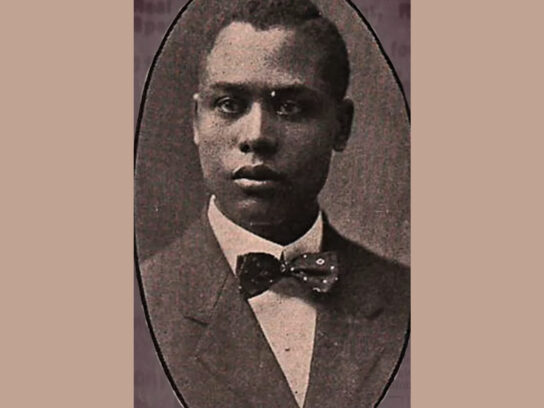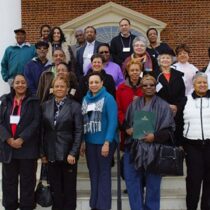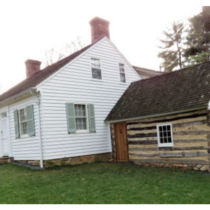
This past month I had a gratifying but shocking experience down in my native state of Alabama. I traveled to the state capital of Montgomery, having been invited to attend the induction of my great-great-grandfather, James Taylor Jones (1832-1895), into the Alabama Lawyers Hall of Fame. This organization is chaired by the Chief Justice of the Alabama Supreme Court, and has honored over 90 Alabama attorneys since it was begun in 2004. I was familiar with the Hall of Fame, since my great-great-great-great (!) grandfather, Judge Harry Toulmin (1766-1823), a founding father of Alabama, was the first state co-founder inducted, back in 2005.
James Taylor Jones had an impressive life. He was born in Richmond, Virginia, but he and his family moved to Marengo County, Alabama (in the west central part of the state) when he was only two. He was educated at Princeton, earning two degrees, and received his law degree in 1855 from the University of Virginia.
When Jones returned to Alabama to begin his law practice in 1856, he was described as “the most educated lawyer in the state.” He was elected Mayor of Demopolis at the age of 28. At the start of the Civil War, he enlisted as a private in the Canebrake Rifle Guards, part of the 4th Alabama Infantry, CSA. He fought at the Battle of Bull Run (First Manassas, the first major battle of the war), was promoted to Lieutenant then Captain, and fought at Gettysburg and the Battle of the Wilderness. Jones was wounded in battle but recovered, and was next appointed Judge Advocate General of the Confederate Army. He escaped the fall of Richmond and at the end of the war walked for 30 days back to his home in Demopolis.
After the war he renounced the rebellion and swore allegiance to the USA. He was elected to four terms in the US Congress, and in 1892 was appointed Judge of the First Judicial Circuit of Alabama, a position he held until his death in 1895.
Although a conservative Southern Democrat and former slave owner, he advocated for public education for black children. For this apostasy he briefly lost his seat in Congress, although he was later re-elected.
It was gratifying to have this ancestor honored, and to be able to give a short acceptance speech at the ceremony, along with my second cousin once removed, James McPhillips, another Jones descendant and himself a powerhouse attorney in the AI and software space.
But then the shocking part of the ceremony happened. Five attorneys were honored in the ceremony, including three white males, a white woman (Jane Ludlow Shores, 1932-2017, the first woman on the Alabama Supreme Court) and a black man, Arthur Alexander Madison (1883-1957).
Arthur Madison was born in Madison Park, Alabama, one of twelve children whose parents were enslaved until 1865. He received an excellent education at the Alabama State Normal School (now Alabama State University), Howard University in DC, and Bowdoin College in Maine. He returned to Alabama to open a shoe company and dry goods store in Montgomery, and later a real estate company. Next he moved back north and worked as a railroad porter in New York. Despite this time-consuming and laborious job, he earned an education degree and a law degree from Columbia University. He served as president of the Harlem Lawyers Association, and became a legal advisor to Father Divine, a famous black messianic religious leader who advocated the end of segregation.
In 1938 Madison won admission to the Alabama State Bar, becoming the second black lawyer in the state, and began working on civil rights and voter registration in Montgomery. In this period there were only about 38 black voters in the city — out of a black population of roughly 27,000! Blacks were discouraged from registering to vote by retaliatory firings at work, arbitrary questions when registering, current and even retroactive poll taxes, and immediate denials based solely on previous denials. Madison declared in 1942 that he would attempt to register 50,000 black voters in the Montgomery region, and filed a voter registration lawsuit on behalf of 13 clients.
Retaliation was swift and brutal. Montgomery County, Alabama sheriff’s deputies threatened to get some of the 13 clients (including Madison’s relatives) fired from their jobs, and to burn down their homes and businesses. Eight of the 13 withdrew from the case, and then Madison was arrested for supposedly “illegally representing” those clients. He was tried, convicted, fined $2,500, and stripped of his Alabama law license.
Despite this terrible setback, Madison continued his efforts, and on June 12, 1944 he registered 750 black voters in Montgomery, the biggest one-day black registration in that city since Reconstruction.
Fast forward to 2023, and the Alabama Lawyers Hall of Fame inducted Arthur Alexander Madison for his education, courage, career and mentoring of future activists such as Rosa Parks. But the induction, which should have been a happy occasion, was shockingly marred when one of Madison’s descendants came to the podium and pointed out that Madison was never re-instated by the Alabama State Bar, and is still listed as shamefully disbarred.
I almost fell out of my chair.
Madison’s family urged that the State Bar reinstate him, and asked everyone in the ceremony room to support this effort, which had never been done posthumously before.
Sounds good to me, considering Madison is now in the Hall of Fame as one of Alabama’s greatest lawyers!
What is happening in Alabama and our country, where voter suppression and history erasure is on the rise, and where we hand out plaques to descendants of great people like Arthur Madison, while simultaneously denying them the right to vote? Will we be still fighting this idiotic racism 500 years from now, when the Hall of Fame is inducting its 2,500th Alabama lawyer?
My answer: at the present rate of progress, yep.
Photos courtesy Lew Toulmin

Photo of Arthur Alexander Madison as a young man.

Descendants of Arthur Alexander Madison holding the induction plaque for the Alabama Lawyers Hall of Fame. Inductees must have practiced law and lived in Alabama, and have died at least two years before being nominated. Relatives or friends of the nominee must submit a package describing the person’s suitable education, character, career, ethical behavior and accomplishments.

Closeup of plaque for Arthur Alexander Madison, inducted into the Alabama Lawyers Hall of Fame despite being disbarred from the Alabama State Bar.

A descendant of Arthur Madison urges the Hall of Fame induction audience to support re-instatement into the Alabama State Bar.

Author Lew Toulmin and his cousin James McPhillips, Esq. with the plaque honoring James Taylor Jones, MC, their common ancestor.

Photo of James Taylor Jones, Judge Advocate General of the Confederate States Army, and later a member of the US Congress and an Alabama state judge.

Alabama Lawyers Hall of Fame plaque honoring Lew’s great-g-g-g-grandfather, Judge Harry Toulmin, a founding father of Alabama, who created the first compilation of the laws of Alabama and Mississippi, helped write the Alabama Constitution, served as the first active Federal judge of southern Alabama, and rode on horseback 1600 miles a year on his judicial circuit.

Plaque honoring Janie Ledlow Shores (1932-2017), the first woman on the Alabama Supreme Court, a position she achieved in 1974. She was inducted into the Hall of Fame in 2023, along with Arthur Madison, James Taylor Jones and two other persons.

The Heflin-Tolbert Justice Building in Montgomery, Alabama, where the Hall of Fame induction ceremonies take place. The Hall of Fame plaques and various judicial artifacts and chairs are shown in the ground floor exhibition space in the building.





























Comments are closed.